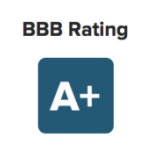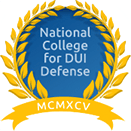When police reasonably suspect that a driver operated a motor vehicle while under the influence of alcohol or drugs, they have the right under the law to arrest the accused so that more detailed test can be performed, in some instances, even a blood test. This post explores the circumstances in which submission of a blood test may be required. Much of majority of this discussion surrounds protocol for blood testing set forth in the recent U.S. Supreme Court decision in State v. McNeely. The case, which is fully binding on all courts in New Jersey, including all Union County Municipal Courts, imposes a requirement that police obtain a warrant before drawing blood absent certain “exigent circumstances”. Prior to McNeely, New Jersey did not require police to obtain a warrant prior to conducting a blood draw. The rationale for not requiring a warrant before conducting an involuntary blood test was that the natural dissipation of alcohol in the blood posed a risk of losing evidence thereby necessitating the immediate draw of blood without any delay (i.e. time to obtain a warrant).
What Type of Circumstances Might Support an Exigent (Emergency) Situation?
The list of potential factual scenarios making it impractical for police to obtain a warrant for blood are virtually endless. The gist of the concept is that police must be presented with a situation that is so spontaneous and fleeting that there is not time to go through the process involved in getting a judge to review the facts and issue a warrant. A situation where exigent/emergency circumstances exist is where there was an accident with serious personal injury necessitating the immediate draw of the blood (e.g person might die thereby negating the ability to do the test if police wait). McNeely directed that certain facts be considered before a court may find impracticality in obtaining a warrant, including:
- Whether there was an accident with life threatening injuries (e.g. person might die before blood is drawn);
- Was the police officer required to transport the Defendant or a victim to the hospital?
- Was one officer able to apply for a warrant while another transported the injured party to the hospital? McNeely, 569 US at 10.
- Did the accident require the police officers to conduct investigative inquiries at the scene?
- The amount of time that passed since the stop (e.g. the relatively linear dissipation of alcohol become more difficult to predict the longer it has been since the individual stopped consuming). McNeely, 569 US at 13.
- Can police receive a telephonic warrant, thus expediting the process? (Id. at 11)(R. Crim. Proc. 3:5-3(b) (2013) permits application for search warrant remotely through telephonic or electronic communication).
- The burden, or lack thereof, for local police to obtain a warrant. McNeely, 569 at 22.
- The availability of a magistrate judge. Id.
- Is the public’s safety generally imperiled, such that officers must take steps to secure the situation.
The primary issue that needs to be settled is what circumstances and situations will create sufficient exigency to allow police to bypass the warrant requirement. The uncertain nature of this issue makes it more important than ever to retain a skilled and experienced attorney to handle your DWI blood draw case.
When Does The Need For Blood Testing Arise In A DWI/DUI Case?
Upon making a traffic stop and suspecting that the driver is driving while intoxicated (i.e. has a blood alcohol content of .08% or higher) or is under the influence of drugs, police have the authority to make an arrest and thereafter seek some form of scientific test to confirm their suspicion. When the intoxication is from alcohol, the test to be performed is a blood test. No warrant is required for this test since an individual impliedly consents to providing such a test as a condition of the right to drive and hold a license. When the situation involves driving under the influence of drugs, however, a breathalyzer accomplishes nothing to confirm the presence of drugs in operator’s system. This is where blood testing most frequently arises. But this form of testing is highly invasive thereby requiring different protection that breath testing. This is why the Supreme Court required a warrant to draw blood in McNeely; individuals normally should not be subjected to such an invasive process unless there is probable cause to support the suspicions of police. A disinterested magistrate or judge is the proper person to determine whether this burden has been met by police, hence, the requirement that they present their case for a warrant before having the ability to draw blood.
If you would like to speak to one of our highly qualified DWI/DUI defense lawyers, call us anytime of day or night at 908-272-1700 for a free consultation.












